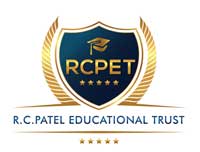Mission :
- Provide inexpensive educational services, inspire to all the Students of society PG
- To develop research aptitude and a scientific advancement.
- Inculcate high values through a liberal education and also to provide platform to have non-formal educational services.
- To bring about an awareness regarding Public Health Service and biodiversity and help to solve different problems to establish sound and peaceful environment and life for community and society.
PO’s:-
- Students gain knowledge and skill in the fundamentals of Zoology, understands the complex interactions among various living organisms.
- Analyse complex interactions among the various animals of different phyla, their distribution and their relationship with the environment.
- Apply the knowledge of internal structure of cell, its functions in control of various metabolic functions of organisms.
- Understands the complex evolutionary processes and behaviour of animals.
- Correlates the physiological processes of animals and relationship of organ systems.
- Understanding of environmental conservation processes and its importance, pollution control and biodiversity and protection of endangered species.
- Gain knowledge of small scale industries like sericulture, fish farming, bee keeping, aquaculture, animal husbandry, poultry farm.
- Understands about various concepts of genetics and its importance in human health.
- Apply ethical principles and commit to professional ethics and responsibilities in delivering his duties.
- Apply the knowledge and understanding of Zoology to one’s own life and work.
- Develops empathy and love towards the animals
CO's:-
Invertebrates & Vertebrates
- Describe general taxonomic rules on animal classification.
- Classify Phylum Protozoa to Echinodermata with taxonomic keys
- Imparts conceptual knowledge of vertebrates, their adaptations and associations in relation to their environment.
- Classify phylum Protochordates to Mammalia.
Comparative Anatomy and Developmental Biology of Vertebrates
- Comparative knowledge of Integumentary, Digestive, Circulatory, Urogenital, Nervous and Skeletal system of various classes of vertebrates.
- Basic concepts of developmental biology.
- Concept of hormonal regulation of reproduction.
Physiology and Biochemistry:
- Students gain fundamental knowledge of animal physiology
- Seeks to understand the mechanisms that work to keep the animal body alive and functioning.
- Interactions and interdependence of physiological and biochemical processes.
- Students are taught the detailed concepts of digestion, respiration, excretion, the functioning of nerves and muscles, cardiovascular system, endocrine system and reproductive system.
- Physiological and biochemical understanding through scientific enquiry into the nature of mechanical, physical, and biochemical functions of animals, their organs, and the cells of which they are composed
- Students learn the concepts of endocrine systems and homeostasis.
Genetics and Evolutionary Biology:
- Division aspects of basic unit of life i.e. cell.
- Mendelian and non-mandolin inheritance.
- Understanding of basic concepts of genetics and laws of inheritance.
- Concept behind genetic disorder, gene mutations- various causes associated with inborn errors of metabolism.
- Theories of evolution and knowledge of evolution of species
- Knowledge about eras and population genetics.
- Understanding of genetic basis of evolution, human karyotyping and speciation
Applied Zoology
- Understands concepts of fisheries, fishing tools and site selection.
- Understands about parasites and epidemiology of parasites in human and animals.
- Use of recombinant DNA technology in genetic manipulations and in a variety of industrial processes.
- Understanding of in vitro culturing of organisms and production of transgenic animals.
- Types of breeds in animal farming and poultry farming along with their management.
- Aqua culture systems, induced breeding techniques and post harvesting techniques.
Apiculture:
- Knowledge about honey bee and bee rearing.
- Knowing beehives, bee keeping equipment, methods of extraction of honey and processing of honey.
- Bee enemies and diseases.
- Bee economy and entrepreneurship in apiculture.
Sericulture:
- Gives knowledge of silk worm rearing.
- Mulberry cultivation.
- Pests and diseases associated with silk worm and mulberry.
- Various process involved in silk production Aquarium
Public Health and Hygiene
- Knowledge about Personal hygiene and community hygiene, nutrition, health and major nutritional deficiency diseases.
- Concept of environment degradation, issues and health hazards like personal and mental hygiene, addiction etc.
- General concept of communicable diseases, mechanism of pathogenesis and their control measures.
- Life Style Related Non-Communicable Diseases, their causes and prevention through dietary and lifestyle modifications.
- Social health problems like smoking, alcoholism, drug dependence and their dead diction.
